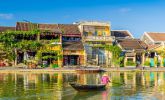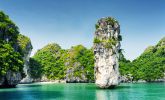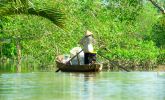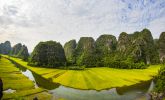FAQs
Quick-fire answers to our most frequently asked questions
In this section we've put together some of the questions we frequently get asked about our tours and about travel in Indochina. If your question is not answered below please don't hesitate to contact us directly.
- When is the best time to travel to Vietnam?
-
The best time to travel in Vietnam is when there is a reduced chance of rain: https://swallowtravel.com/blog/when-is-the-best-time-to-visit-vietnam-b89.html
- October – January (Northern Vietnam)
- February – April (Central Vietnam),
- December – March (Southern Vietnam).
At any time of the year, climate may not so good in some regions but it’s still good in some others. So, you can always select a suitable trip in Vietnam. Just prepare air ticket from/to your country, apply Vietnam entry visa. In case you do not have time to apply visa in your country, we can help you obtain visa on arrival (getting visa at the arrival airport)
- Is this safe to travel in Vietnam?
- How to apply Vietnam entry visa
- Do I need to take vaccination before travelling to Vietnam?
- Customs Regulation?
- What are the banned materials?
- Currency & Exchange rate
- How are local food and drinks?
- What souvenir should I taken when visiting Vietnam?
- Tipping & Gratuities?
- Airport departure tax?
- Internet access and communication?
- Electricity
- What are vehicles used for the tour?
- Any specific clothes during the tour?
- Is this safe to travel in Cambodia?
- When is the best time to travel in Cambodia?
- How to apply Cambodia entry visa?
- Cambodian currency & exchange rate?
- Is it safe to travel to Laos?
- What kind of currencies should you recommend?
- Where can I change money?
- Is it better to use dollars or dong for daily expenses?
Information
Company Name
SWALLOW VIETNAM TOURIST JOINT STOCK COMPANY
- Address: No 13, Alley 12, Nhue Giang street, Nguyen Trai, Ha Dong, Hanoi, Vietnam
- Email: info@swallowtravel.com
- Phone: +61 412 905 664
- Hotline: +84 982 397 555
.png)





.png)